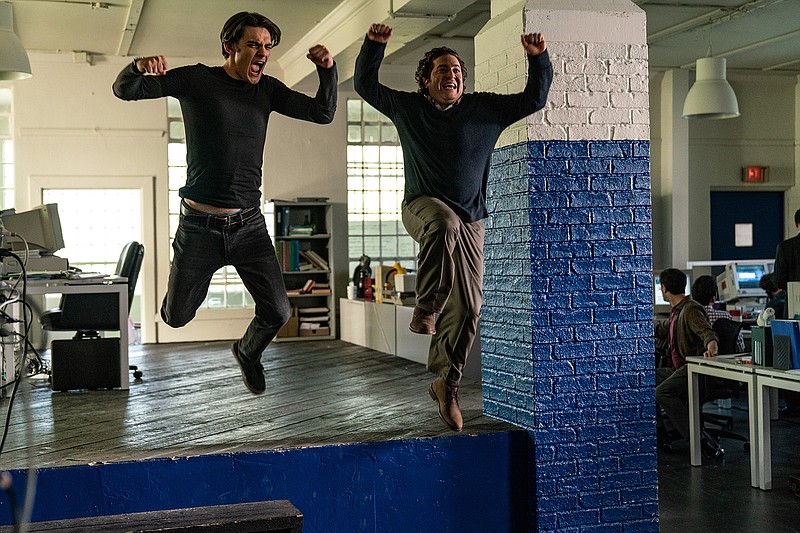National Geographic's six-part series "Valley of the Boom" chronicles the rise of the internet, and 1990s Silicon Valley, from boom to bust in a docudrama that's as sober and informative as it is snarky and entertaining.
Somewhere between the satirical "Silicon Valley," the historical drama "Halt and Catch Fire" and the Frontline doc "The Facebook Dilemma," the series, which premiered Sunday, explores the era's innovation, and the greed, with a sharp sense of history and humor.
It's one of many recent TV shows, films and books that look back at the celebrated technological revolution of the late 20th century, but through the lens of what we know now: i.e., identity theft, online predators, Russian trolls, fake news and, worst of all, pop-up ads based on keywords from your "private" email.
The series, created, written and partially directed by Matthew Carnahan ("House of Lies"), is a dramatized narrative based on "mostly true" events and is structured almost like a true-crime series. It features first-hand accounts of, say, the rise of Netscape or the birth of social media through interviews with real-life players like Netscape CEO James Barksdale and TheGlobe.com founders Stephan Paternot and Todd Krizelman. Documentary-like footage is paired with reenactments of key events by actors such as Steve Zahn (as scam artist Michael Fenne), Bradley Whitford (Barksdale) and Lamorne Morris (who plays a fictional venture capitalist).
"Valley of the Boom" is told in both conventional form and quirky, artistic flourishes. For example, characters often break the fourth wall and talk directly to the camera. One of Fenne's more absurd inner monologues is augmented by the moves of an interpretive dancer. And Bill Gates is portrayed by a puppet.
If it sounds weird, it is, but it's exactly the right amount of bizarre to make an otherwise dense and tangled piece of modern history palatable-and hilarious.
The tale is told largely through the rise and fall of three companies-web browser Netscape, Facebook precursor TheGlobe and the earliest promise of a streaming site, Pixelon-in hourlong episodes. Together they paint a picture of a tech revolution that was a mystery to most of America, a point that's exemplified in "Today" show footage that shows Bryant Gumbel and Katie Couric asking, "What is the internet, anyway?"
"Boom" paints Silicon Valley as an amalgamation of socially stunted geniuses, competitive CEOs and smooth-talking charlatans. Or, as the series states early on, the people behind the companies: "Visionaries. Hustlers. Geeks. Al Gore."
Each hourlong episode chronicles the excitement, and investment capital, generated by new breakthroughs on the World Wide Web. Dial-up modem?!! Chat rooms with icons?!! Video in real time?!!
The public naivete and insider fervor characterized here illustrate a business where innovation was hard to measure. As one expert puts it, it was "every level of truth and fantasy existing at the same time."
"Valley of the Boom," part of National Geographic's continued foray into scripted drama, meets what they do best: documentaries that take viewers into alien worlds. Their 2016 project "Mars" set the stage.
But humor is a key ingredient, and it makes the series a fun watch even for those who may not think they care about the advent of social media or the cutthroat business practices of Microsoft.

